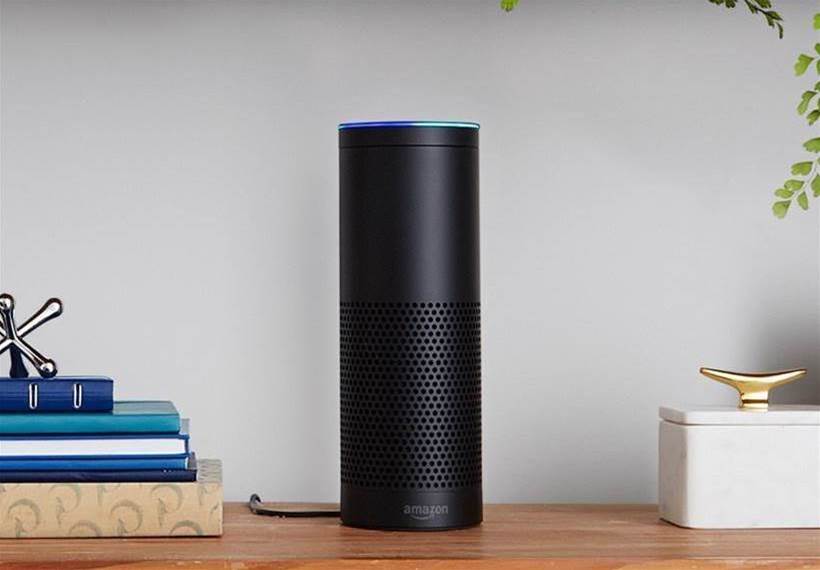The World Wide Web is now ubiquitous, enabling everybody to bank online, interact with government or simply get information via inputting text, but speech-based interfaces are on the rise.
On some estimates more than eight million US homes now have an Amazon Echo device (pictured). In conjunction with Amazon’s Alexa speech recognition and artificial intelligence users can ask questions of the smart home device and have the answered relayed back verbally.
Google Home can perform similar functions, though unfortunately neither device is officially available in Australia yet. Apple is launching a similar device, HomePod, which will be available in Australia when it launches at the end of the year.
This week in Australia online bank ING Direct is boasting of a new range of chatbots that will be able to talk to customers in everyday jargon-free language.
In short, accessing online systems via speech instead of via a screen is a rapidly growing phenomenon, but one that could create huge changes for organisations such as government that use their web site to support a wide range of essential services to citizens.
New speech-based government services for citizens
These challenges are an early focus for the recently formed Acquia Labs, the R&D arm of Acquia, a US-based global provider of content management systems based on Drupal.
The manager of Acquia Labs, Preston So, told IoT Hub: “We have focussed on developing a conversational interface for things like The Amazon Echo, Google Home, Siri. These kinds of interfaces really impact the way brands are able to communicate with their customers.”
One of the labs’ first projects is with the Government of the US state of Georgia to make some of its services available through the Amazon Echo.
“For our pilot conversational project with Georgiagov we have focussed on how we can redirect some of the things a citizen might want to do such as renewing a driving licence, and looked at how we can allow them to access the content they need,” So said.
The aim of the project is not to create an information source dedicated to the Amazon Echo, but to make use of information already available.
“Georgia does not have a lot of resources to rewrite content for their web site and for a conversational interface, so we have taken the textual content already available on the Georgiagov web site and made that accessible for people using an Amazon Echo,” So said.
So said adapting Georgia’s information had been made easier by the fact that much of it is in the form of FAQs but he predicted similar initiatives would create challenges for many organisations as the popularity of speech interaction grows.
“A lot of compromises will have to be made to adjust the content to fit both paradigms … I think a lot of brands will face a challenge over whether to create a new team or to try and maximize what they already have.”
For the next stage of the Georgiagov project So said Acquia Labs was looking at enabling Georgia’s citizens to register to vote or to renew a driver’s license though Amazon Echo alone. “One of the big issues is privacy, because every bit of data entered through Echo goes all the way to Amazon’s servers.”
The director of Georgiagov, Nikhil Deshpande, said conversational interfaces like that with the Amazon Echo would eliminate the dependency on users’ understanding of a website’s content structure. “Users are able to have a direct conversation with devices and formulate questions based on their existing mental models and terminologies.”







